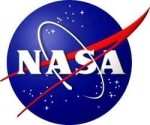Mon, Sep 28, 2009
Payloads Will Fly On Sounding Rockets Or High-Altitude
Balloons
 NASA has selected nine scientific teams to work on future
high-altitude balloon and sounding rocket payloads. The selected
proposals address a wide range of astrophysical mysteries from dark
matter and cosmic-ray antiprotons to studies of galaxy clusters and
supernova remnants.
NASA has selected nine scientific teams to work on future
high-altitude balloon and sounding rocket payloads. The selected
proposals address a wide range of astrophysical mysteries from dark
matter and cosmic-ray antiprotons to studies of galaxy clusters and
supernova remnants.
"The suborbital research program is a very important part of
astrophysics," said Jon A. Morse, director of the Astrophysics
Division of the Science Mission Directorate at NASA Headquarters in
Washington. "We are very pleased to provide support for these
selected projects, recommended through a highly competitive
merit-based review process. The projects also contribute to NASA's
broader goals by providing hands-on training for early career
scientists and engineers in space hardware and data analysis."
The recipients of the awards will develop payloads using
detectors and instruments of their own design. Within several
years, they will fly the payloads on sounding rockets or
long-duration balloons. These suborbital investigations provide
unique opportunities for executing science investigations and
advancing the state-of-the-art in the areas of future spaceflight
detectors and supporting technologies.
Early career researchers, especially graduate students, often
play lead roles in developing suborbital payloads. Many past and
present space astrophysics missions were led by former suborbital
investigators and have used technologies originally developed for
sounding rocket or balloon payloads.
"Everybody is looking forward to working with young researchers
to conduct scientific observations and technology development from
the vantage point of scientific balloons at the edge of space,"
said David Pierce, chief of the Balloon Program Office at NASA's
Wallops Flight Facility in Virginia. "We look forward to supporting
these science missions, for the knowledge about our universe and
the new technology they will produce."
The Sounding Rocket and Balloon Program offices at Wallops
manage the sounding rocket and balloon flight operations, which are
implemented via support contracts.
More News
Its Offerings Are Lighter, Cleaner, and Now Pushing Past 1,000nm on SAF Jet Fuel DeltaHawk’s diesel-powered aircraft lineup has seen incredible upgrades over the last few yea>[...]
The Airplane Experienced A Total Loss Of Engine Power On December 3, 2025, about 1600 central standard time, a Mooney Aircraft Corp. M20K, N57229, was substantially damaged when it>[...]
Make Sure You NEVER Miss A New Story From Aero-News Network Do you ever feel like you never see posts from a certain person or page on Facebook or Instagram? Here’s how you c>[...]
Aero Linx: European Society of Aerospace Medicine (ESAM) As a pan-European, independent forum, it works to promote the safety and health of all persons involved in aviation and spa>[...]
“We are excited to see Wisk achieve this milestone, and I’m so proud of the team that made it possible. The team at Wisk has built advanced technologies across flight c>[...]
 Aero-TV: DeltaHawks Diesel Power Steps Into the Spotlight
Aero-TV: DeltaHawks Diesel Power Steps Into the Spotlight NTSB Prelim: Mooney Aircraft Corp. M20K
NTSB Prelim: Mooney Aircraft Corp. M20K ANN FAQ: Turn On Post Notifications
ANN FAQ: Turn On Post Notifications ANN's Daily Aero-Linx (12.20.25)
ANN's Daily Aero-Linx (12.20.25) Aero-News: Quote of the Day (12.20.25)
Aero-News: Quote of the Day (12.20.25)



